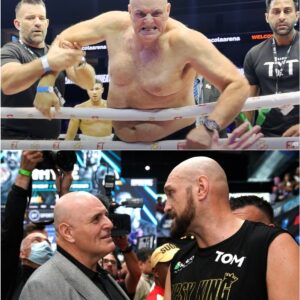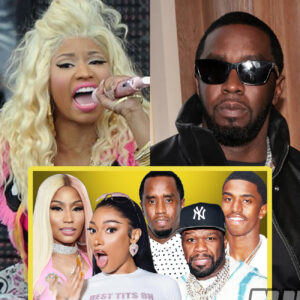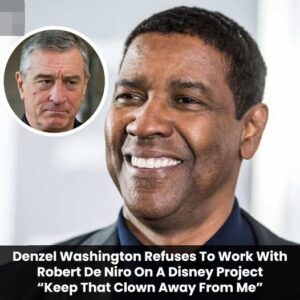**The Great Dress Debate in Hollywood: Marlon Wayans, Cat Williams, and the Double Standards in Comedy**
In a recent interview, Marlon Wayans tackled a controversial issue that has sparked heated discussions in the comedy world: the wearing of dresses by Black male comedians.
This topic, which touches on themes of integrity, artistic freedom, and societal double standards, has led to a brewing feud between Wayans and fellow comedian Cat Williams.

### Marlon Wayans’ Perspective
Wayans, known for his role in the comedy classic “White Chicks,” defended his choice to wear a dress, emphasizing that it was a comedic and artistic decision rather than a betrayal of his cultural identity.
In a candid discussion with Big Boy on his show, Wayans expressed frustration over the criticism Black comedians face when they wear dresses. He pointed out the double standards, noting that when white actors like Robin Williams (in “Mrs. Doubtfire”), Tom Hanks (in “Bosom Buddies”), or Dustin Hoffman (in “Tootsie”) don a dress, they are celebrated for their versatility and brilliance.
“I’m tired of the rhetoric that wearing a dress in Hollywood means you’ve sold out,” Wayans said passionately. “Black people, as soon as we put on the dress, we start tearing each other down. This is art, and this is comedy.”
Wayans urged the Black community to stop tearing each other down over the dress issue and to embrace the diversity within Black humor. He referenced legends like Flip Wilson and Tyler Perry, who have both worn dresses for comedic roles, and called for an end to the toxic mindset that equates wearing a dress with a lack of integrity.
### Cat Williams’ Criticism
On the other side of the debate, Cat Williams has been vocal about his disapproval of Black comedians wearing dresses. Williams argues that Hollywood pressures Black comedians into wearing dresses as a means of control and to emasculate them. He has accused Marlon Wayans of protecting what he calls “predators” in the comedy scene, suggesting that these individuals coerce Black men into compromising their integrity for success.
Williams’ stance is rooted in the belief that the choice to wear a dress is not entirely voluntary and that it is often linked to career advancement in an industry dominated by white gatekeepers. He has been consistent in his criticism, suggesting that Black comedians who wear dresses are selling out and betraying their cultural values.
### The Kevin Hart Paradox
Kevin Hart’s journey with this issue provides an interesting twist. Initially, Hart was adamant about not wearing a dress, citing the importance of protecting his brand and maintaining boundaries. He stated in an interview, “You have to have boundaries you refuse to cross.”
However, Hart’s stance seemed to shift when he donned a dress for a skit on “Saturday Night Live.” This decision sparked backlash, with fans accusing him of compromising his principles for fame and money. Hart defended his choice by emphasizing that it was about the comedic value of the skit, not a forced decision. This incident highlighted the complexity of the debate, where personal boundaries and professional opportunities often collide.
### Brandon T. Jackson’s Regret
Brandon T. Jackson, who starred alongside Martin Lawrence in “Big Momma’s House,” has publicly expressed regret over wearing a dress for the role. In an interview with Comedy Hype, Jackson reflected on how his career and personal life took a downturn after that movie. He revealed that Cat Williams had tried to warn him against wearing a dress, but he initially saw it as heckling rather than advice.
“Everything went wrong when I put on that dress,” Jackson admitted, indicating that while his career gained visibility, his personal life suffered. He now views Williams’ warnings in a new light, acknowledging that Williams was trying to help him understand the potential pitfalls of compromising his integrity.
### The Broader Cultural Implications
This debate extends beyond individual choices and delves into broader cultural implications. The act of Black men wearing dresses in Hollywood is often seen through the lens of historical emasculation and control. For many, it echoes a painful past where Black men were stripped of their masculinity and agency.
Conversely, proponents like Wayans argue that comedy and art should be free from such constraints. They advocate for the ability to portray diverse characters and scenarios without being labeled as sellouts. This perspective emphasizes the importance of creative freedom and the need to break down harmful stereotypes within the entertainment industry.
### Conclusion
The debate over Black male comedians wearing dresses in Hollywood is a multifaceted issue that touches on themes of integrity, artistic freedom, and cultural identity. While Marlon Wayans calls for an end to the double standards and urges the Black community to embrace diversity in comedy, Cat Williams warns against the pressures and potential compromises that come with such roles.
Ultimately, this ongoing conversation highlights the need for a nuanced understanding of the choices comedians make and the cultural context in which they operate.
It’s a debate that will likely continue as the entertainment industry evolves and as more voices contribute to the discussion. Whether seen as a path to success or a compromise of values, the wearing of dresses by Black comedians remains a contentious and complex issue in Hollywood.
News
Drama in the Ring! Tyson Fury Terminates John Fury’s Role as Trainer After Brutal Upset by Oleksandr Usyk
In a dramatic turn of events, Tyson Fury has decided to terminate his father John Fury’s role as his trainer following a brutal upset by Oleksandr Usyk. The unexpected loss has sent shockwaves through the boxing community and led to…
(VIDEO) Megan Thee Stallion BAITS Nicki Minaj into another rap beef? | 50 Cent DRAGS Diddy’s son Christian
**Christian Combs Disses 50 Cent and 50 Responds: A Clash of Hip-Hop Titans** In the realm of hip-hop, beefs and controversies are almost as common as chart-topping hits. Recently, a new chapter unfolded in the ongoing saga between Christian Combs,…
Breaking: Gordon Ramsay Throws Robert De Niro Out Of His Restaurant, “Don’t Come Back Here You Woke Baby”
In a dramatic and unexpected turn of events, renowned celebrity chef Gordon Ramsay has made headlines by reportedly throwing Academy Award-winning actor Robert De Niro out of his restaurant. The incident, which has sparked widespread media attention and public debate,…
(VIDEO) Joe Rogan & Matthew McConaughey Exposes 7 Actors Hollywood BETRAYED
**Unveiling the Dark Side of Hollywood: The Stories of Matthew McConaughey, Keanu Reeves, and Wesley Snipes** Hollywood, often seen as a dreamland of glitz and glamour, has a hidden underbelly that reveals a starkly different reality for some of its…
Breaking: Denzel Washington Rejects $100 Million Disney Offer to Work with ‘Woke’ Robert De Niro, ‘He’s a Creepy Old Man’
In a recent turn of events that has left Hollywood in a state of shock and contemplation, Denzel Washington, a figure synonymous with integrity and talent in the film industry, has made headlines by rejecting a colossal $100 million offer…
Breaking: Robert De Niro Gets Kicked Out Of The Warner Bros. Studio, “Keep Your Wokeness Out”
In a shocking turn of events that has sent ripples through Hollywood, iconic actor Robert De Niro was reportedly thrown out of Warner Bros. Studios. The reason cited? Spreading his “creepiness.” This incident has sparked intense debate and controversy, leaving…
End of content
No more pages to load











